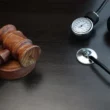Medical negligence is a serious issue that can have devastating consequences for patients and their families. When you seek medical treatment, you expect to receive competent and professional care. However, there are times when medical professionals make mistakes that result in serious harm to patients. In such cases, it is important to understand your legal rights and options.
One legal avenue available to patients who have suffered harm due to medical negligence is the Consumer Protection Act. This act provides a framework for holding medical professionals and healthcare providers accountable for their actions.
It allows patients to seek compensation for damages, including medical expenses, lost income, and pain and suffering.
However, navigating the legal system can be complex and challenging, especially when dealing with medical issues. It is important to have a clear understanding of your legal rights and options, as well as the resources available to you.
What is Medical Negligence?
Medical negligence occurs when a healthcare professional fails to provide adequate care, and as a result, a patient suffers harm or injury. It is also known as medical malpractice or medical error. Medical negligence can happen in any healthcare setting, including hospitals, clinics, and private practices.
Duty of Care and Reasonable Care
Healthcare professionals have a legal and ethical duty of care towards their patients. This means that they must provide care that meets the standard of care expected of a reasonable person in the same circumstances.
Reasonable care means that healthcare professionals must act with the level of care, skill, and diligence that a competent healthcare professional in the same field would provide.
Breach of Duty of Care
A breach of duty of care occurs when a healthcare professional fails to meet the standard of care expected of them. This can happen due to an error of judgment, lack of skill or knowledge, or failure to follow established protocols.
A breach of duty of care does not necessarily mean that the healthcare professional was negligent. The standard of care is determined by the circumstances of each case.
Types of Medical Negligence
Medical negligence can take many forms, including misdiagnosis, delayed diagnosis, surgical errors, medication errors, and failure to obtain informed consent.
Misdiagnosis occurs when a healthcare professional fails to diagnose a condition or diagnoses it incorrectly.
Delayed diagnosis occurs when a healthcare professional fails to diagnose a condition in a timely manner, leading to harm or injury.
Surgical errors occur during surgical procedures, such as operating on the wrong body part or leaving surgical instruments inside the patient’s body.
Medication errors occur when a healthcare professional prescribes the wrong medication or the wrong dosage.
Failure to obtain informed consent occurs when a patient is not fully informed about the risks and benefits of a medical procedure or treatment.
Liability and Damages
If a healthcare professional is found to have been negligent, they may be liable for damages.
Damages can include compensation for medical expenses, lost wages, pain and suffering, and loss of future earnings.
The amount of damages awarded depends on the severity of the harm or injury suffered by the patient. In some cases, a healthcare professional may be required to pay punitive damages, which are intended to punish them for their negligence.
Medical negligence is a type of tort, which is a civil wrong that causes harm or injury to another person.
If you believe that you have been the victim of medical negligence, you may file a complaint with the relevant regulatory body or seek legal advice. It is important to note that not all medical errors constitute medical negligence.
To prove medical negligence, you must show that the healthcare professional breached their duty of care and that this breach caused you harm or injury.
The Bolam test is often used to determine whether a healthcare professional was negligent. This test asks whether the healthcare professional acted in accordance with the standards of a reasonable body of medical opinion.
Consumer Protection Act
The Consumer Protection Act (COPRA) is a law enacted by the Indian government to protect consumers from unfair trade practices and ensure their rights are protected. It was enacted in 1986 and has undergone several amendments since then to ensure it remains relevant and effective.
What is the Consumer Protection Act?
The Consumer Protection Act is a law that provides consumers with a framework to seek redressal for any deficiency of service or unfair trade practices.
It ensures that consumers have the right to be informed, to choose, to be heard, to seek redressal, and to be safe. The Act applies to all goods and services, including medical services, and covers all sectors of the economy.
Consumer Rights and Complaints
Under the Consumer Protection Act, you have the right to file a complaint against any deficiency in service or unfair trade practice. You can file a complaint with the district forum, state commission, or national commission, depending on the value of the goods or services in question.
The complaint should be filed within two years from the date of the cause of action.
Consumer Courts
The Consumer Protection Act provides for the establishment of consumer courts at the district, state, and national levels. These courts are responsible for hearing complaints filed by consumers and providing redressal.
The district forum hears complaints where the value of the goods or services is less than a specified price, the state commission hears complaints where the value is between a specific amount, and the national commission hears complaints where the value is more than a specific amount.
Appeals and Complainants
If you are not satisfied with the decision of the district forum, you can appeal to the state commission. Similarly, if you are not satisfied with the decision of the state commission, you can appeal to the national commission.
The complainant has the right to be represented by an advocate or a consumer organization and is not required to pay any fees for filing a complaint or appearing before the consumer court.
In a nutshell, the Consumer Protection Act is a crucial law that protects the rights of consumers and ensures that they have a framework to seek redressal for any deficiency of service or unfair trade practices. If you feel that your rights as a consumer have been violated, you can file a complaint with the appropriate consumer court and seek redressal.
Medical Negligence and Consumer Protection Act
If you have been a victim of medical negligence, you have the right to seek compensation under the Consumer Protection Act. The Act provides for the establishment of consumer courts at the district, state, and national levels to hear complaints from consumers against service providers, including medical professionals.
Application of Consumer Protection Act to Medical Negligence
The Consumer Protection Act applies to medical negligence cases where a service provider has failed to provide the required standard of care, resulting in injury or harm to the patient. The Act covers all aspects of medical treatment, including diagnosis, treatment, surgery, and therapy.
Consumer Protection Act and Medical Treatment
Under the Consumer Protection Act, you have the right to receive medical treatment that meets the required standard of care. If a medical professional fails to provide the required standard of care, resulting in injury or harm, you can file a complaint with the consumer court.
Consumer Protection Act and Consent
The Consumer Protection Act requires medical professionals to obtain informed consent from patients before providing medical treatment. Informed consent means that the patient has been fully informed about the risks and benefits of the treatment and has given their consent voluntarily.
Consumer Protection Act and Payment
Under the Consumer Protection Act, you have the right to receive medical treatment at a reasonable cost. If a medical professional charges an exorbitant fee, you can file a complaint with the consumer court.
Consumer Protection Act and Surgery
The Consumer Protection Act applies to cases of medical negligence in surgery, where a medical professional has failed to provide the required standard of care, resulting in injury or harm to the patient. The Act covers all types of surgery, including cosmetic surgery.
Consumer Protection Act and Therapy
The Consumer Protection Act applies to cases of medical negligence in therapy, where a medical professional has failed to provide the required standard of care, resulting in injury or harm to the patient. The Act covers all types of therapy, including physical therapy and psychotherapy.
Consumer Protection Act and Medical Equipment
Under the Consumer Protection Act, you have the right to receive medical treatment using equipment that meets the required standard of care. If a medical professional uses faulty equipment, resulting in injury or harm, you can file a complaint with the consumer court.
In conclusion, the Consumer Protection Act provides a mechanism for victims of medical negligence to seek compensation. If you have been a victim of medical negligence, you can file a complaint with the consumer court and seek redress.
Legal Framework for Medical Negligence
When it comes to medical negligence, the legal framework in India is primarily governed by the Indian Penal Code (IPC) and the Consumer Protection Act. In addition, the Supreme Court of India and various case laws have also played a significant role in shaping the legal framework surrounding medical negligence.
IPC and Medical Negligence
Under the IPC, medical negligence can be considered a criminal offense if it results in the death of a patient. Section 304A of the IPC deals with cases where death is caused by a rash or negligent act not amounting to culpable homicide. In such cases, the punishment can range from imprisonment for up to two years, or a fine, or both.
Supreme Court of India and Medical Negligence
The Supreme Court of India has played a crucial role in defining the legal framework for medical negligence. In the landmark case of Indian Medical Association v. V.P. Shantha, the Supreme Court held that medical professionals could be held liable for medical negligence under the law of torts. The court also laid down guidelines for determining the standard of care expected from medical professionals.
In another significant case, Jacob Mathew v. State of Punjab, the Supreme Court held that a doctor could be held liable for medical negligence if the treatment provided fell below the standard of care expected from a reasonably competent medical professional.
Case Laws on Medical Negligence
Over the years, several case laws have helped shape the legal framework surrounding medical negligence.
In the case of Spring Meadows Hospital v. Harjot Ahluwalia, the National Consumer Disputes Redressal Commission (NCDRC) held that a hospital could be held liable for medical negligence if it failed to provide adequate care to a patient.
Similarly, in the case of Dr. Laxman Balkrishna Joshi v. Dr. Trimbak Bapu Godbole, the Supreme Court held that a doctor could be held liable for medical negligence if he or she failed to exercise reasonable care and skill while treating a patient.
Overall, the legal framework for medical negligence in India is primarily governed by the IPC and the Consumer Protection Act. The Supreme Court of India and various case laws have also played a significant role in shaping the legal framework surrounding medical negligence. It is essential for medical professionals to be aware of these laws and guidelines to avoid any legal ramifications.
Medical Professionals and Medical Negligence
Medical professionals are responsible for providing care and treatment to patients. However, sometimes they may fail to provide the standard level of care, which can result in medical negligence. Medical negligence occurs when a medical professional fails to provide the care that is expected of them, resulting in harm to the patient.
Medical Specialists and Medical Negligence
Medical specialists are highly trained professionals who provide specialized care to patients. They are expected to provide a higher level of care than a general practitioner. However, even medical specialists can be guilty of medical negligence. For example, a surgeon may fail to perform a procedure correctly, resulting in harm to the patient.
Medical Council of India and Medical Negligence
The Medical Council of India is responsible for regulating the medical profession in India. They set standards for medical education, registration of medical practitioners, and medical ethics. In cases of medical negligence, the Medical Council of India may investigate and take disciplinary action against the medical professional. It is important for medical professionals to adhere to the standards set by the Medical Council of India to avoid disciplinary action.
Ordinary Skilled Man Test
The Ordinary Skilled Man Test is used to determine whether a medical professional has been negligent. This test determines whether the medical professional has acted in a manner that is expected of an ordinary skilled man in their profession. If it is found that the medical professional has not acted in a manner that is expected of an ordinary skilled man, then they may be guilty of medical negligence.
In conclusion, medical professionals have a duty of care to provide the standard level of care to their patients. Medical negligence can occur when a medical professional fails to provide the expected level of care, resulting in harm to the patient. It is important for medical professionals to adhere to the standards set by the Medical Council of India and to act in a manner that is expected of an ordinary skilled man in their profession to avoid disciplinary action.
Conclusion
In conclusion, it is important for doctors and healthcare professionals to have a thorough understanding of medical negligence and the Consumer Protection Act. As a healthcare professional, it is your responsibility to provide the best possible care to your patients and ensure that their rights are protected.
By keeping up-to-date with the latest medical knowledge and regularly reviewing your practices, you can help prevent medical negligence and ensure that you are providing the best possible care to your patients. Additionally, it is important to maintain open communication with your patients and address any concerns they may have in a timely and respectful manner.
In the event that medical negligence does occur, it is important to take responsibility for your actions and work with your patients to find a resolution. This may involve providing compensation for any damages or injuries caused by the negligence.
Overall, by prioritizing patient care and staying informed about medical negligence and the Consumer Protection Act, you can help ensure that your patients receive the best possible care and that their rights are protected.
YOU SHOULD ALSO READ:












